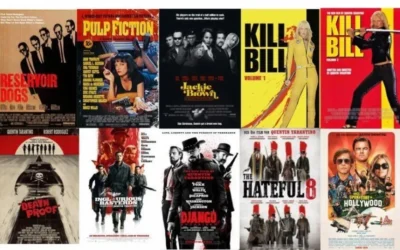California’s $2.8 Billion Bailout: A Response to Medicaid Funding Challenges
In a bold and decisive move aimed at ensuring access to healthcare for California’s most vulnerable populations, Governor Gavin Newsom recently signed a landmark legislation allocating $2.8 billion to bolster the state’s Medicaid program, Medi-Cal. This funding is particularly significant as it comes in the wake of rising enrollments fueled, in part, by the expansion of coverage for undocumented immigrants. This article delves into the implications of this bailout, its impact on California’s healthcare landscape, and answers whether Medi-Cal is truly running out of money.
The Need for a Bailout
California has been a front-runner in progressive healthcare policies, making strides towards inclusivity and accessibility. However, as more immigrants have gained access to Medi-Cal, the financial strains on the program have become evident.
The influx of enrollment was substantially boosted by the state’s decision to cover low-income undocumented immigrants aged 26 and under. This initiative, part of a broader push for healthcare equity, has led to a significant rise in Medi-Cal beneficiaries over the past few years. With the number of enrollees swelling, Medi-Cal’s funding structure—a mix of state, federal, and local resources—has come under strain, raising concerns about its long-term sustainability.
A Closer Look at the $2.8 Billion Allocation
The newly signed legislation aims to close the funding gap that has emerged due to increased expenditure on the Medi-Cal program. This $2.8 billion allocation is expected to come from a mix of one-time federal funds and state general funds designed to stabilize the program while allowing the state to continue providing necessary healthcare services.
According to state officials, this investment will not only ensure that current Medi-Cal beneficiaries maintain their healthcare access but also allow the program to adapt and innovate to meet the growing needs of California’s diverse population.
Reactions from Lawmakers and Advocates
The announcement of the $2.8 billion bailout has received a largely favorable reception from various stakeholders in California’s healthcare realm. Advocates for immigrant rights and healthcare access have lauded the move as a necessary step towards preventing a healthcare crisis that could disproportionately affect low-income families.
Assembly Speaker Anthony Rendon emphasized, “This investment reflects our commitment to equity and basic human rights. Everyone deserves access to healthcare, regardless of their immigration status.” Meanwhile, others remain cautious, noting the ongoing uncertainty surrounding future federal support and funding for Medicaid as a whole.
Concerns About Long-Term Viability
While the immediate funding solution provided by the $2.8 billion bailout may alleviate some pressures, experts warn about the need for a more sustainable long-term strategy for Medi-Cal. Francesca B. Rojas, a healthcare economist, stated, “The expansion of Medi-Cal’s services is commendable, but it’s critical for California to explore various avenues to maintain funding and address the rising costs associated with the program.”
The increasing number of beneficiaries, coupled with rising healthcare costs, poses ongoing challenges that may lead to further funding gaps in the future. Experts emphasize that reforms in how services are delivered, along with a focus on preventive care, could mitigate some of these financial strains.
Is Medi-Cal Running Out of Money?
This question looms large as California navigates the complexities of funding its Medicaid program. The reality is that Medi-Cal is operating under significant financial pressures, and while the recent bailout provides immediate relief, the long-term outlook remains uncertain.
According to state officials, without continuous adjustments to the funding structure and a stable influx of federal resources, the program risks facing deficits that could jeopardize healthcare access for millions. State budget analysts forecast that if current trends continue—with no substantial changes to funding mechanisms—Medi-Cal could face substantial shortfalls by the end of the next fiscal year.
As California continues to grapple with these challenges, the attention has now also turned to legislative options that may arise to ensure long-term funding for Medi-Cal. Discussions around potential taxation, exploring additional federal funding requests, or establishing a dedicated revenue stream for healthcare are just a few solutions on the table.
The Political Landscape
The funding crisis within Medi-Cal highlights the interplay between immigration policy and healthcare access—a subject that continues to polarize voters and lawmakers alike. Critics of the funding bailouts often argue that funds should prioritize U.S. citizens, while proponents advocate for comprehensive support that includes all California residents.
At the heart of this debate is the question of equity in healthcare. As California positions itself as a leader in progressive healthcare reforms, balancing the needs of the undocumented population with those of native residents is a delicate political tightrope.
Looking Ahead
The $2.8 billion bailout represents a significant commitment by the state of California to safeguard its residents’ access to healthcare. However, the question remains: Can the state develop a sustainable model that supports the ongoing growth of the Medi-Cal program?
Governor Newsom has pledged to further examine innovative solutions to ensure that Medi-Cal remains funded and robust for all Californians. As California leads the way in providing healthcare access, it sets a precedent and serves as a test case for other states grappling with similar challenges.
In conclusion, while California’s bailout of Medi-Cal is a critical step towards addressing immediate financial woes, the long-term sustainability of the program depends on a concerted effort among policymakers, healthcare providers, and stakeholders to navigate the evolving landscape of healthcare financing, immigration, and access. Amidst all this, the goal remains clear: to provide equitable healthcare services to everyone in California.






